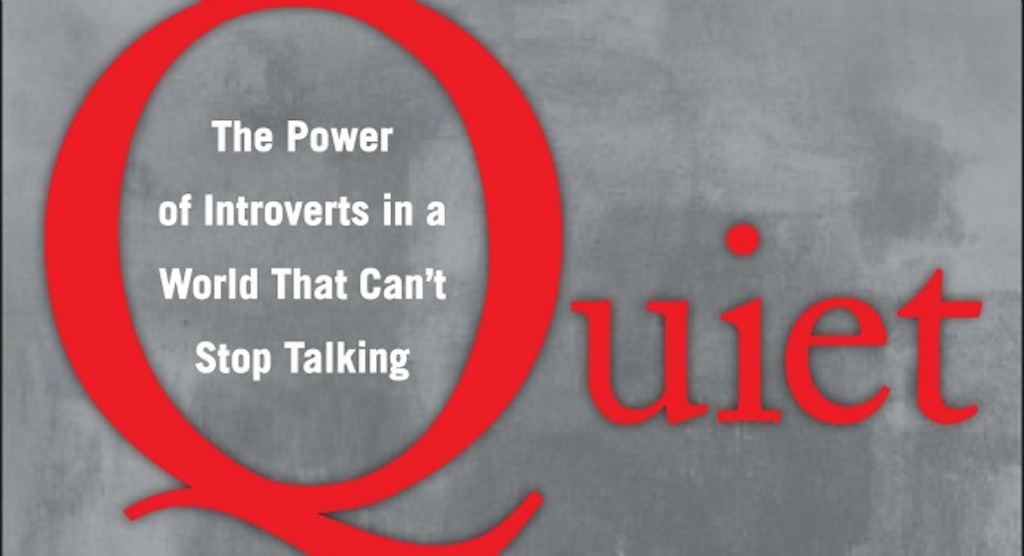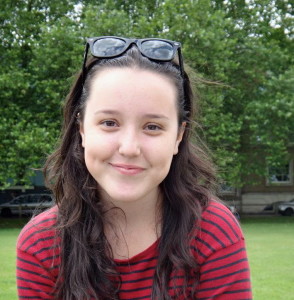Participation. The word is often found under the grade section of almost every class syllabus handed out during the first days of school. For some the word might not even register as anything major, but for others it triggers a copious amount of anxiety. These are usually the same people who prefer listening to talking, who might get anxious or stressed when attending parties for too long, who are described by friends as being “quiet.” In her book Quiet: The Power of Introverts in a World That Can’t Stop Talking, as well as her extremely popular TED Talk, Susan Cain describes the challenges of being one of these quiet “introverts” in a society that praises talkative and assertive She argues that this sort of paradigm discourages introverts from being who they are and robs us of some of the unique perspective that introverts bring to the table.
When Susan Cain came to talk to the Upper School on Thursday, January 16th, she stressed that two of the greatest misconceptions holding introverts back are that being alone is bad and that one cannot be both an introvert and a leader. Regarding the former, Cain explained how some people cultivate their most creative and profound ideas during periods of alone time, citing countless successful figures, such as Warren Buffett, who include alone time in their method for success. Warren Buffett is also living proof of Susan Cain’s other major point that leadership and introversion are not mutually exclusive. She argued that some famous leaders were able to be successful because of their introversion since their reluctance to be the center of attention means that when introverts speak up they do it because they truly care about their cause.
The issues surrounding society’s extroversion bias are incredibly complicated because the issue gets to the heart of many lofty questions (such as “who are we?”) and challenges old societal values that have deeply rooted themselves in our self-perception and education. Nonetheless, Ms. Cain’s visit to the Upper School provided a chance for the community to reflect on the way they deal with both introversion and extroversion. “I liked that she made the distinction between introversion and social awkwardness,” said junior Callie Goodin, a self-described introvert. “I feel like a lot of people tend to confuse the two when really introversion is more about getting energy from yourself as opposed to other people.” Suzanne Fogarty, BC’s Upper School Director, noted that Susan Cain’s inspiring way of breaking such misconceptions was part of the reason for having her come to speak. She articulated that, “to see someone who considers herself an introvert be up there in front of all those people was very inspiring to me, and on top of that her message is really important.”
One of the most invigorating parts of Cain’s visit was that she wasn’t just relaying information, but also promoting how people might use their newfound awareness of introverts to make meaningful changes in the way they go about day to day life. Teachers especially took this to heart. Upper School English Department Chair Erika Drezner remarked how Cain’s talk was a reminder that introversion is “a real and valuable way of being, and that I should try not to assume that it will be a liability for my students in class. She also reminded me to notice my introverted students more, and to imagine class more from their perspective and think about what they might need.” Cain’s talk prompted a lot of people to discuss possible tactics that might ameliorate the situation. Junior Callie Goodin echoed one of Susan Cain’s pieces of advice when she noted that giving students time to prepare and think about what they want to say before diving into class discussion might make things easier for the more introverted kids. Suzanne Fogarty on the other hand, remarked how blogs were also a good way to bring out the usually quieter voices in the class.
While Thursday’s talk focused primarily on introverts, in the broader picture both the voices of the quiet introvert and the company-loving extrovert are needed in society. “I think [Berkeley Carroll] will continue to value participation” says Ms. Fogarty, “But I think what Susan Cain’s visit and this conversation has caused us to think about is how do we strike a balance between listening and talking.”


